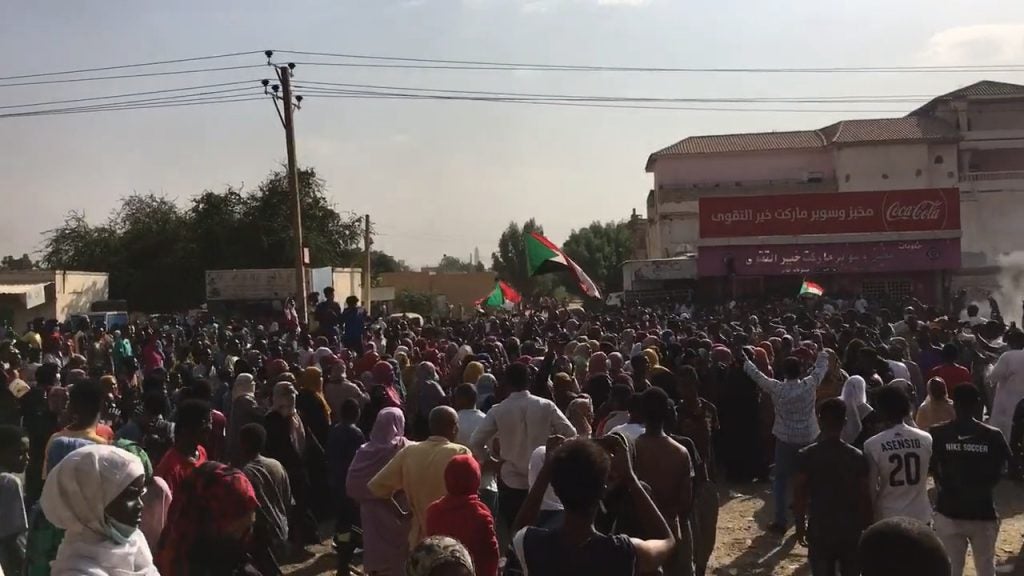Protests In Sudan’s Capital Against Military Coup
Sudan’s military announced early on Monday that it was dissolving the government overseeing the nation’s transition to democracy following the 2019 ouster of autocratic leader Omar al-Bashir, detaining civilian leaders of the government including Prime Minister Abdalla Hamdouk.
In a televised address, General Abdel Fattah al-Burhan, commander in chief of Sudan’s armed forces and former transitional government leader, claimed that political infighting had necessitated the declaration of a state of emergency and the formation of a technocratic government. In the broadcast, he claimed that the move was necessary to “rectify the revolution’s course”, saying that elections will be held in July 2023.
The Sudanese information ministry, still loyal to the civilian government, has stated that military personnel blocked roads and bridges leading into the capital of Khartoum early on Monday, alongside a cut of internet service across Sudan. The ministry also says that soldiers have stormed the headquarters of Sudan’s state broadcaster in the capital’s twin city of Omdurman, across the Nile from Khartoum.
Internet monitor NetBlocks confirmed the internet blockage, saying that connectivity had dropped to 24% of normal traffic, in what it described as “the country’s most severe blackout since the 2019 massacres”. While connectivity in Khartoum appears to have been at least partially restored as of writing, it is unclear whether this is a temporary anomaly.
Civilians in Khartoum and Omdurman took to the streets in response to news of the detention of civilian leaders, with the restoration of internet access allowing for footage of protests against the coup to be uploaded on social media. Protesters gathering outside the headquarters of Sudan’s military are reported to have been fired upon with live ammunition, with at least two killed and 80 injured according to initial reports from medics.
The coup has met with international condemnation, with the United States’ Special Envoy for the Horn of Africa, Jeffrey Feltman, warning that the “utterly unacceptable” move would put American assistance to the country at risk. European Union foreign policy head Josep Borrell and the United Kingdom’s Special Envoy for Sudan and South Sudan Robert Fairweather have also described the coup as a “betrayal” of the revolution, the transition to democracy and the Sudanese people.
The coup comes a week after pro-military protesters held a sit-in outside the presidential palace in Khartoum, calling for a military takeover. While nationwide counterprotests attracted significantly larger crowds, the sit-in was suspected by pro-democracy activists to have been an attempt to legitimize a coup attempt, suspicions which now appear to have been proven correct.

